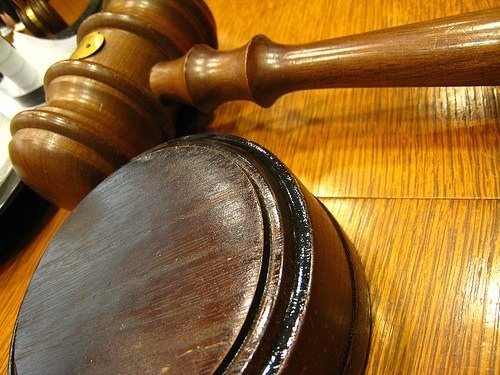Apple picked up another major victory in its ongoing patent battle with Samsung this afternoon. The International Trade Commission has just handed down a decision in the company’s case against Samsung, finding the Korean tech giant guilty of infringement.
The final ruling on the complaint, which Apple first lodged in July 2011, finds several Samsung products guilty of infringing on two of Apple’s patents. An import ban has been ordered on those products, and will take effect at the end of the 60-day Presidential review period…
Here’s Florian Mueller of FOSS Patents with more information:
“Today the United States International Trade Commission (USITC, or just ITC) handed down its final ruling on Apple’s July 2011 complaint against Samsung. An import ban has been ordered and will take effect at the end of the 60-day Presidential review period.
Even though there may be expectations in South Korea that Samsung should benefit from a Presidential veto only because Apple just won one last Saturday, “me too” doesn’t make sense here because standard-essential patents (SEPs) like the one over which the ITC wanted to grant Samsung an exclusion order come with FRAND (fair, reasonable and non-discriminatory) licensing obligations and can’t be worked around without prohibitive switching costs, while non-SEPs are traditional exclusionary rights and, most importantly, can be worked around.
In fact, Samsung presented to the ITC products that it said (and Judge Pender agreed) don’t infringe. If legality is so readily available, a veto isn’t warranted.”
Mueller’s right. Last week, Obama’s Administration exercised the Presidential veto option and reversed the ITC’s ruling that some of Apple’s products be banned for infringing on Samsung patents. The move has had some folks in Samsung’s corner crying ‘foul play.’
But as explained above, there’s a big difference in the patents that each company used in their ban pursuits. Samsung’s two cover cellular functions, and are considered to be standard-essential patents (SEPs), while Apple’s two patents cover less essential UI functions.
Speaking of, here’s the two patents Apple used in the complaint:
- U.S. Patent No. 7,479,949 on a “touch screen device, method, and graphical user interface for determining commands by applying heuristics” (which Apple wanted to call “the Jobs patent” in a trial in Judge Posner’s court that never took place); this patent is under reexamination pressure
- U.S. Patent No. 7,912,501 on an “audio I/O headset plug and plug detection circuitry”
Again, the ban will go into effect in 60 days, unless President Obama decides to intervene again. If he doesn’t, Mueller says the commercial impact of today’s ruling will depend completely on Samsung’s ability to workaround the two patents, which it says it’s been working on.
Be sure to let us know what you think of the ITC’s decision down in the comments!
Update: both Apple and Samsung have provided statements to AllThingsD. Here’s Apple:
“With today’s decision, the ITC has joined courts around the world in Japan, Korea, Germany, Netherlands and California by standing up for innovation and rejecting Samsung’s blatant copying of Apple’s products. Protecting real innovation is what the patent system should be about.”
And Samsung:
“Apple has been stopped from trying to use its overbroad design patents to achieve a monopoly on rectangles and rounded corners. The proper focus for the smartphone industry is not a global war in the courts, but fair competition in the marketplace. Samsung will continue to launch many innovative products and we have already taken measures to ensure that all of our products will continue to be available in the United States.”
